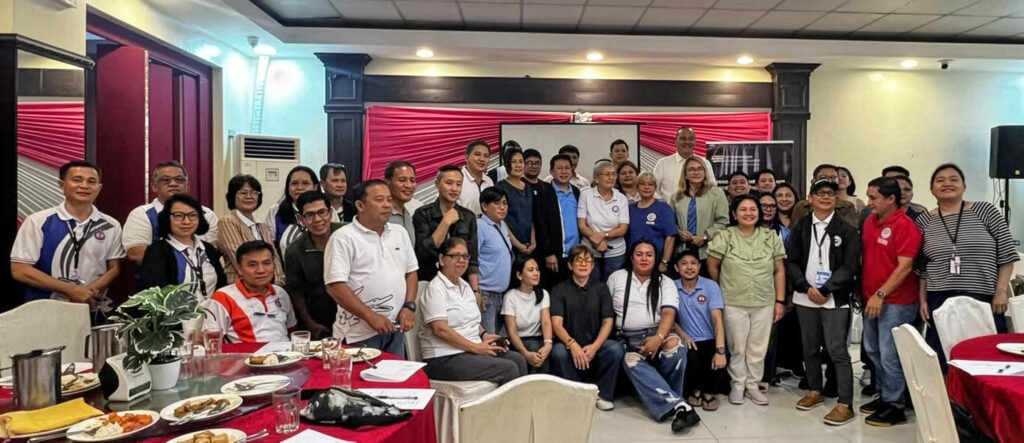- Research on water tariff reform has been shared with key stakeholders in the Province of Laguna, part of the Greater Manila Area of the Philippines.
- The GCEIP study team gathered feedback from water district board members as well as customers, local leaders and representatives.
- With further refinement, tariff reform should pave the way for better water resources in difficult-to-serve areas and investment in climate resilient infrastructure.

Members of the Calamba Water District (CWD) leadership team with barangay leaders and sector representatives
The findings of a study on water tariff reform were shared with key stakeholders in the Province of Laguna, part of the Great Manila Area in the Philippines, during consultations on September 10 and 17, 2025.
The research work on ‘regulatory asset base and missionary water tariffs’ is led by the Green Cities, Infrastructure and Energy Programme (GCIEP).
The Philippines faces water security challenges, driven by rapid urbanisation, climate change and inadequate infrastructure. Working closely with in-country partners such as the Department of Environment and local water utilities, GCIEP is improving the enabling environment for an integrated and circular water resource management approach in the Philippines.
One key focus is developing sustainable water tariffs that will increase the financial robustness of urban water utilities, making them more attractive for investment. Complementary to this, ‘missionary’ charges could be included to ring-fence funds for system expansion to underserved populations living in marginal urban areas.
The GCIEP study team presented the proposed reforms to a wide range of stakeholders from the Siniloan and Calamba Water Districts in Laguna. The sessions brought together water district board members, local leadership and a diverse mix of residential and commercial customers. While customers raised important concerns regarding sensitivity to tariff adjustments and the need for transparency and efficiency to reduce system losses, the consultations were highly effective. There was broad understanding of the benefits of maintaining a creditworthy utility and positive support for the proposal to extend services to underserved areas.
The next steps will involve presenting the study’s findings and a proposed implementation roadmap to the joint regulators. The recommendations will then be consolidated into a formal policy note, providing clear guidance for policymakers and water regulators to implement a tariff reform that paves the way for a more sustainable, inclusive and climate-resilient water future for the Philippines.
The UK’s Green Cities, Infrastructure and Energy Programme is tackling climate change and extreme poverty by accelerating the delivery of sustainable green cities and climate-resilient infrastructure.
Published
26/09/25
